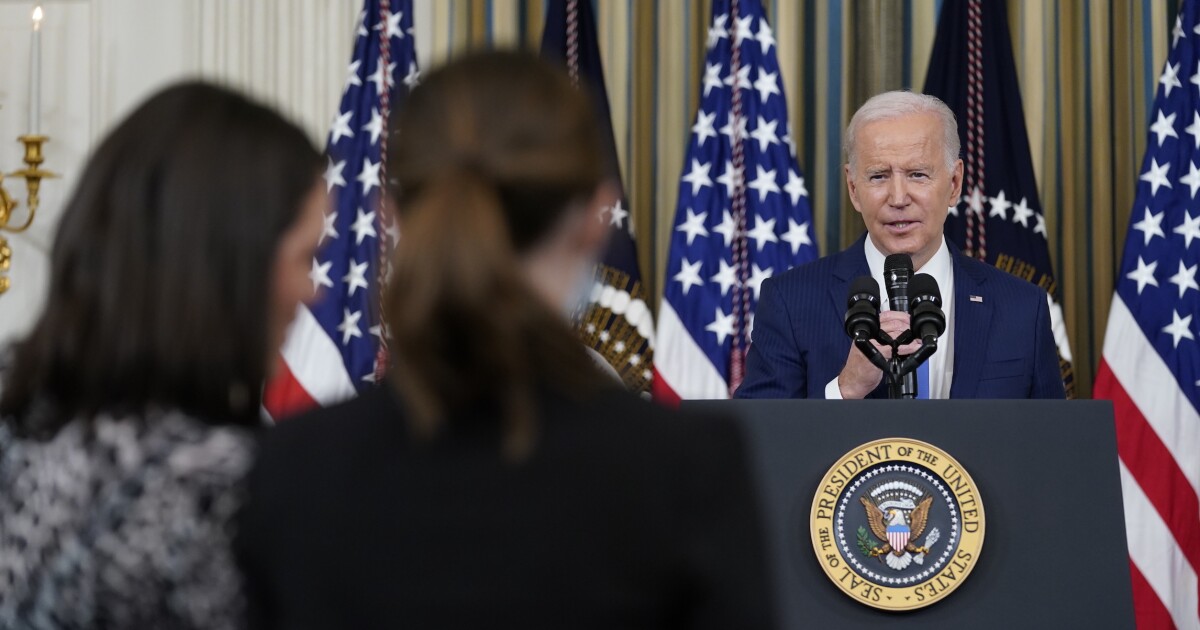

President Joe Biden utilized a low-profile strategy during the midterm elections, avoiding battleground state rallies in favor of policy-focused appearances and fundraisers. While that tactic was questioned at the time, it appears vindicated by the results of the campaign.
Unusually for an incumbent president, Biden sought to direct attention away from himself and place it elsewhere, especially on the supposed threat of Trump-aligned “MAGA” Republicans.
BIDEN BUOYED FOR 2024 AFTER BETTER-THAN-EXPECTED MIDTERM ELECTIONS
“Let’s be real clear about one important thing: This election is not a referendum,” Biden said during a Democratic National Committee reception in Florida. “It’s a choice. It’s a choice between two vastly different visions for America.”
After weighing that choice, the electorate decided it wanted more Republicans in Congress, but barely so. The GOP is likely to take control of the House, albeit by smaller-than-expected margins, and Democrats could even keep control of the Senate, bucking midterm traditions.
Former President Barack Obama lost 63 House seats in the 2010 midterm elections, Bill Clinton lost 54 in 1994, and Donald Trump lost 40 in 2018. Biden is likely to lose less than 20 once all votes are counted.
White House chief of staff Ron Klain made explicit that Biden was avoiding large campaign rallies precisely because his predecessors had used them with such disastrous results.
“Both President Obama — I was here, I’ll share responsibility for it — and President Trump got walloped in the midterms. So I don’t think it should surprise anyone that we’re not using the strategy that failed in 2010 and the strategy that failed in 2018,” Klain told CNN host Anderson Cooper. “Instead, what you’re seeing is the president is traveling the country with Democrat elected officials, with Democratic candidates, like he was in Pennsylvania today with John Fetterman, our candidate for Senate there, and he is talking about the issues that really impact people.”
The gamble appears to have paid off. According to a Morning Consult poll, just 33% of voters had Biden on their minds as they cast ballots, down from 51% who were thinking of Trump in 2018. In fact, 30% said they were thinking of Trump this time around, giving the former president nearly the same mind share as the incumbent.
With Trump deeply unpopular with Democrats and independents, the contrast may have helped Democrats avoid a disastrous midterm cycle.
“Klain was right,” said Colby College visiting politics instructor Sandy Maisel. “He didn’t want this to be a referendum on Biden; he wanted it to be a choice between two visions of the country. It’s difficult for any midterm not to be a referendum on the incumbent, and I think they did a masterful job of changing the dialogue.”
Polling also showed that Democratic Senate incumbents maintained their popularity among voters in spite of Biden’s job performance.
Biden’s approval ratings are 42.2%, per the RealClearPolitics average, reinforcing the notion that he shouldn’t be campaigning too heavily. Instead, Biden spoke in blue states and private fundraisers about how MAGA Republicans would harm the economy, refuse to accept election results, and threaten popular entitlement programs. In the House, the Jan. 6 committee worked a similar dynamic in keeping the spotlight on Trump.
“A lot of Republicans have learned a lesson,” Maisel said. “The biggest loser in this campaign by any measure is Donald Trump. His people lost.”
White House press secretary Karine Jean-Pierre indicated Thursday that the pattern will continue, sidestepping a question on whether the president will campaign with Sen. Raphael Warnock (D-GA) during his runoff with the Trump-aligned Herschel Walker. Biden hasn’t visited the Peach State since January.
Republican strategist Doug Heye largely agreed with Maisel’s assessment.
“Most campaigns felt that Biden wouldn’t be a positive to their races, given the numbers on inflation and Biden’s unpopularity,” he said. “But what had more impact was the late entry of Donald Trump on the campaign trail, sharpening that contrast to independent voters on how so many of the cartoon character candidates in the GOP were unelectable to them.”
The loss of those “cartoon” candidates may have cost Republicans control of the Senate for a second straight cycle.
“Republicans were doing very well until Trump decided that he needed more attention,” said Heye.
That attention will soon turn to 2024 and whether or not Biden and Trump decide to seek the highest office again. But the performance of the latter’s candidates indicate that Republicans may be better off seeking a fresh face.
For Democrats, the ability to differentiate between an unpopular incumbent and an even more unpopular alternative may provide a framework for future elections as well.
CLICK HERE TO READ MORE FROM THE WASHINGTON EXAMINER
“For an incumbent president,” Heye said, “he wasn’t that much of a factor.”





